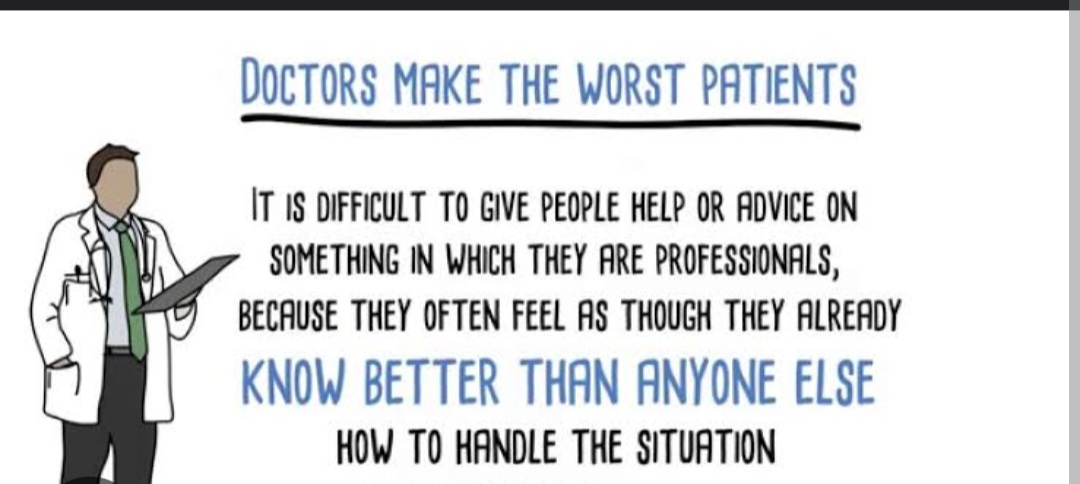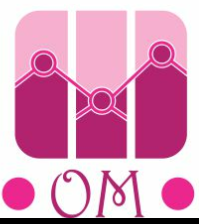Balancing Act: The Dual Challenges of Healthcare Professionals as Patients
2024-03-01 19:44:11 | Dr.Sabarinath M | Professional risk, health care , doctors

As I contemplate the idea of delving into writing a blog (more accurately, scribbling) to satisfy my inner calling, I can't help but dwell on thoughts that have been lingering in my mind for the past few days.
Most healthcare professionals would agree that they are the worst patients. Meaning they excel at managing the problems of others but often falter when it comes to their own health. It's not uncommon to see doctors or nurses dispensing loads of advice to diabetic patients while themselves falling prey to fast food in the hospital canteen or skipping their own medications in favor of trendy diets they believe can reverse their conditions. Multiple consultations, repeated investigations, and scrolling through multiple treatment options are the rule when it comes to managing their own health issues. And this behavior is not just limited to doctors; I would say it is a universal phenomenon among healthcare professionals, often more with paramedical faculty than medical. A cumulative result of what I would like to call "professional peril."
Access to vast medical knowledge, constant exposure to sickness, and the sheer number of diseases encountered in a professional career can lead to a kind of institutionalized hypochondria. It's no surprise that many of us in the healthcare profession are quick to jump to the most extreme or rare diagnoses, even for minor symptoms. Most of us won't resist a head scan for a headache. Managing countless patients with headaches, our brain often pops up with the most dangerous or rarest diagnosis to us. We become our own worst enemies when it comes to our health. This is not new, and I'm sure most of my colleagues would agree with this complaint against self. But that's the problem of the team that is taking care of the doctor as a patient. Let it be.
But what concerns me more is the flip side of this coin. Let me share more. A colleague of mine, super busy in patient care, had noticed a small lump in her neck midline four years ago. . As any doc would do, she ringed her surgery friend, who suggested thyroid function test. The results were normal, and as is the norm, they were shared via WhatsApp, and consultation was completed. Surgeon friend was also kind enough to share the contact phone number of his ENT doctor friend, and the same virtual consultation was done. The friend list extended to the endocrine surgeon, and all is well over the phone. The superbusy doctor did make sure to check thyroid function at regular intervals and ensure it was normal. However, she decided not to disturb her WhatsApp friend list. Such multiple consultations often leave you with confidence, or, I would say, pseudo-confidence, that everything is fine until it takes a fresh pair of eyes from a new surgeon who joined the workplace recently. As the new surgeon tried to palpate the gland from behind to finish (pass!) his examination, he noticed multiple small swellings around the main swelling. Thinking of lymph nodes, he ordered an ultrasound scan, which was suspicious of a thyroid tumor with neck nodes. The diagnosis stuck like a bolt to the doctor patient. She couldn't digest the fact that she just did a periodic thyroid function test and overlooked the swelling without doing any physical examination or direct consultation. A 5-minute walk into the surgeon's examination room would have made the diagnosis pretty earlier than the endless WhatsApp consultations. She rushed her workup and got operated on the third day.
More about the other side of the coin. Another incident involved a friend whose toddler was noticed to have a speech delay. Hesitant to ask at the first friendly visit to home, I overcame the so-called good mannerism and expressed my concerns about the kid to the mother. The answer was even more disturbing. Convinced that the child's lack of progress was due to excessive screen time-a common issue in households where parents, especially doctors, struggle to find family time, she dismissed the poor speech skills of her kid. She has not visited her pediatric friend beyond the vaccination visits, as the doctor parent is pretty confident in managing the usual childhood flu episodes, and if at all there are any doubts, expert opinion is just a phone call away. With my doubts ringing alarm, she visited a child development specialist in person, and the child was diagnosed with having red flags for autism.
These anecdotes are not fictional tales concocted for the sake of this blog; they are real-life scenarios that unfolded before my eyes over the past few days. Such incidents got me thinking: How many other serious conditions are we missing by relying solely on lab results, verbal descriptions, and professional oversight?. Over-reliance on our professional ability across specialties, virtual consultation favors from colleagues, and ignoring the value of sitting in a patient chair may result in guilt of missing the luxury of what a direct examination and physical examination could offer. We are all for leveraging technology to improve patient care and accessibility. But, as convenient as they may be, there's something irreplaceable about a good old-fashioned face-to-face examination. Let's make sure we use it wisely and don't fall victim to the pseudo-satisfaction offered via the phone or other portals. As healthcare professionals, we must also resist the temptation to overlook potentially serious issues while avoiding the trap of overinvestigating simple ones. Getting an opinion as a patient and avoiding interference from biased personal experiences may be useful. This is the other side of professional advantage. As healthcare professionals, we need to ensure that we don't fall on the extremes of our professional curve. This is not to victimize or blame anyone in healthcare for the perks the profession offers. As a matter of fact, any professional would have a field advantage in their area of expertise. Access to multiple consultations, multiple repeated investigations, and overlooking problems as trivial may happen to all of us quite easily and naturally. But we should not overlook the fallacy of this advantage and the consequences of misinterpretation, if any. Also, the mental satisfaction offered by multiple pseudo-consultations may deter us further from seeking the actual professional care required.
I think we need to reconsider the precedence of convenience over thoroughness. May be the difference can only be made through the simple act of sitting in the patient chair and allowing the laying hands of the clinician to heal. And whatsoever, be a patient when it requires you to be one.
